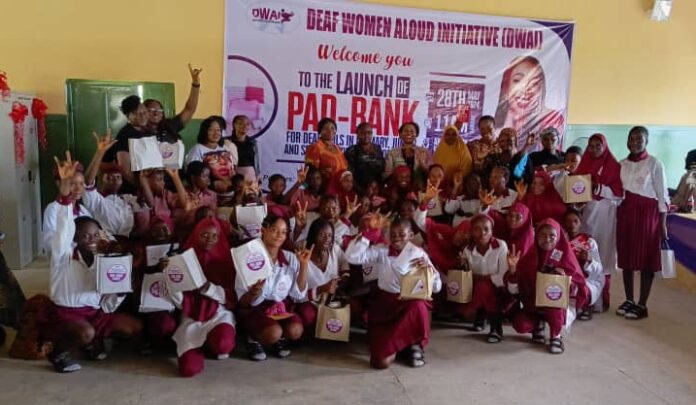In a significant stride towards promoting menstrual hygiene and inclusivity, the Deaf Women Aloud Initiative (DWAI) celebrated World Menstrual Hygiene Day by unveiling a pad-bank at the Abuja School for the Deaf in Kuje. This initiative is part of DWAI’s ongoing efforts to provide inclusive sexual and reproductive health services and rights for deaf women and girls in Nigeria.
World Menstrual Hygiene Day, observed globally on May 28, highlights the challenges millions of women and girls face due to menstruation. This day unites non-profits, governments, the private sector, and individuals to increase awareness and take action toward creating a period-friendly world. This year, DWAI’s focus on deaf girls underscores the unique challenges they face during menstruation, furthering the mission to dismantle taboos and ensure access to quality menstrual products, education, and facilities.
The pad-bank at the Abuja School for the Deaf was officially unveiled by Honorable Adedayo Benjamins-Laniyi, the Mandate Secretary of the Women Affairs Secretariat of the FCT Administration, represented by Dr. Naomi Osemedua, Cohort Principal of FCT Accelerators. The event saw an impressive turnout, including Deaconess Adedoyin Beyioku-Alase, Founder of the Deaf Women Association of Nigeria, Mr. Ayo Beyioku-Alase, Chairman of the Abuja Association of the Deaf, and other notable members of the Abuja Deaf Community.
In her opening remarks, Mrs. Hellen Beyioku-Alase, Executive Director of DWAI, emphasized the motivation behind establishing the pad-bank. She highlighted research showing that deaf girls are disproportionately affected by period poverty. During previous visits to the school, it became evident that many deaf girls resorted to using pieces of cloth, tissue paper, and other inadequate materials due to the unaffordability of sanitary pads. The pad-bank aims to provide a sustainable solution, ensuring these girls have continuous access to quality menstrual products, allowing them to focus on their education without the added stress of period poverty.
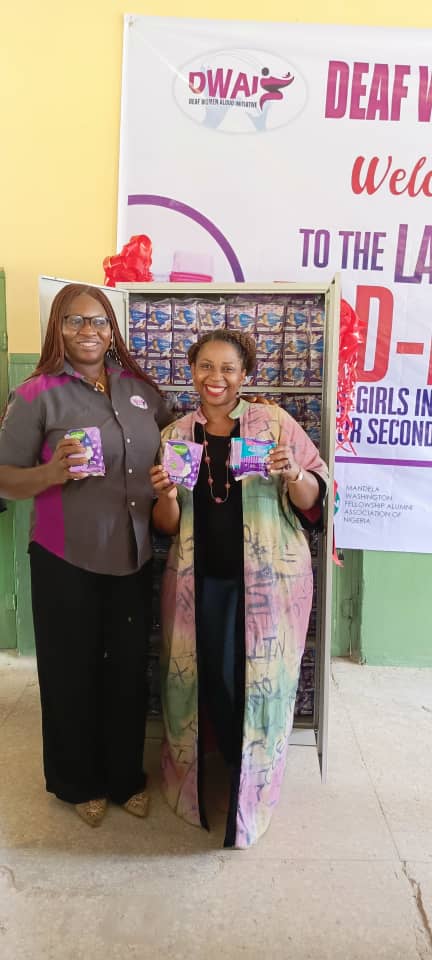
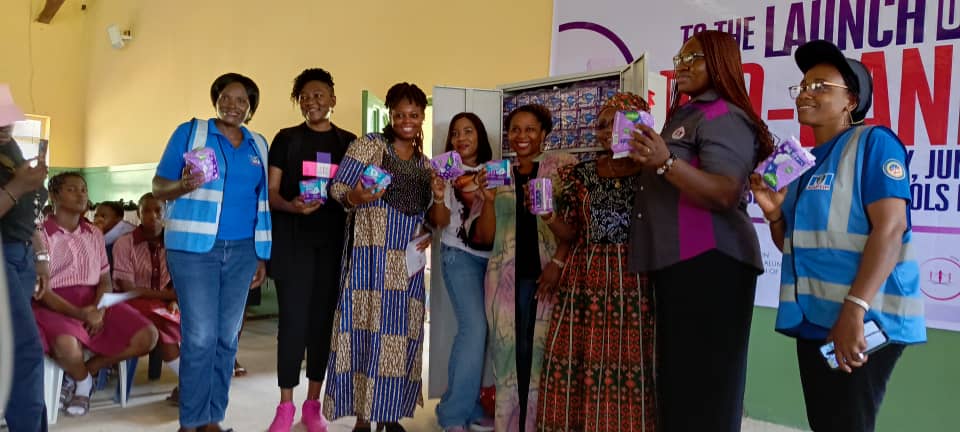
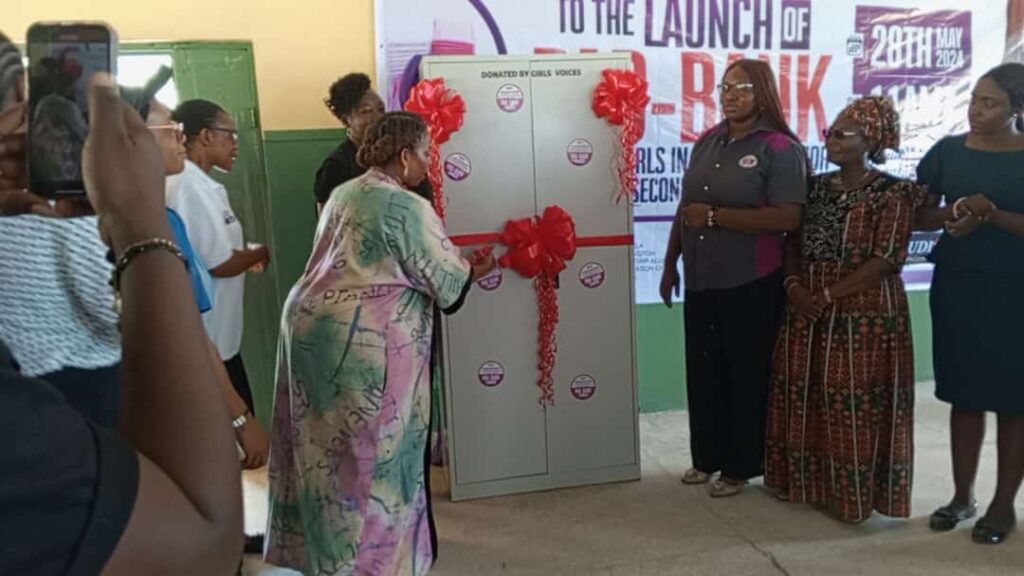
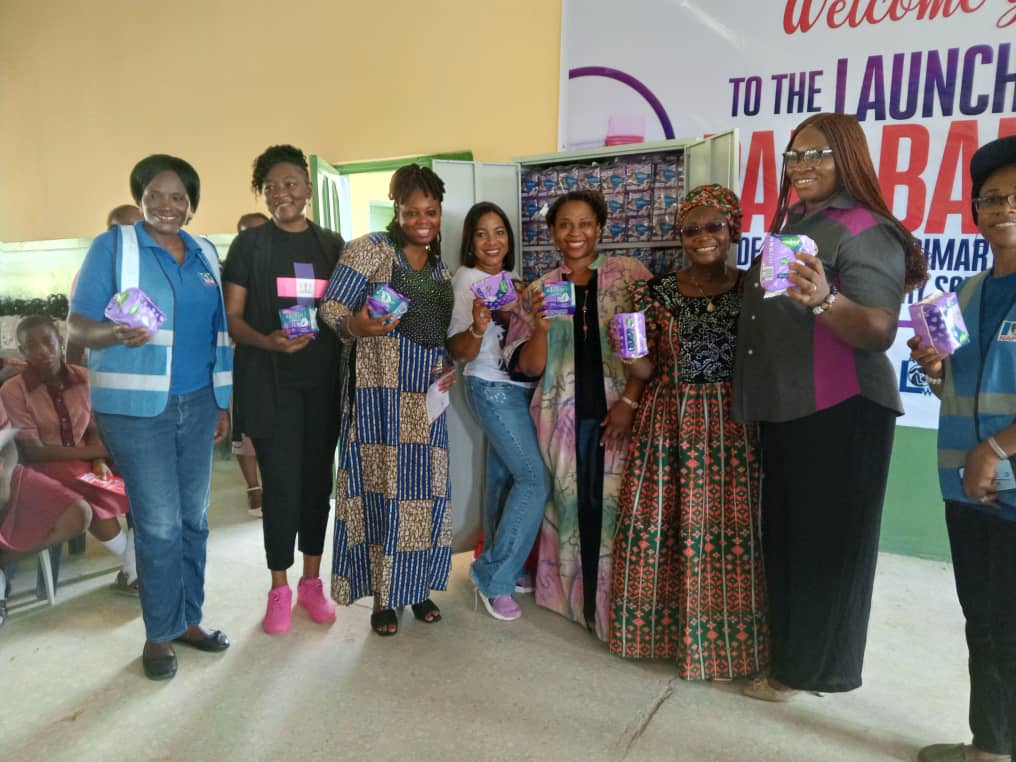
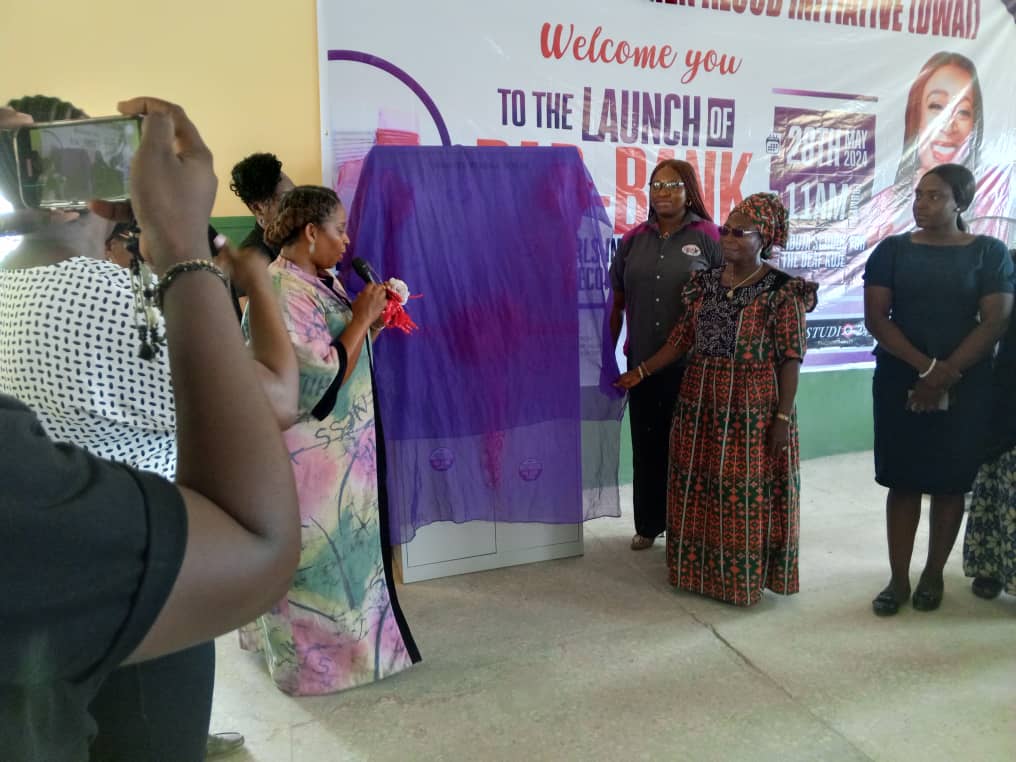
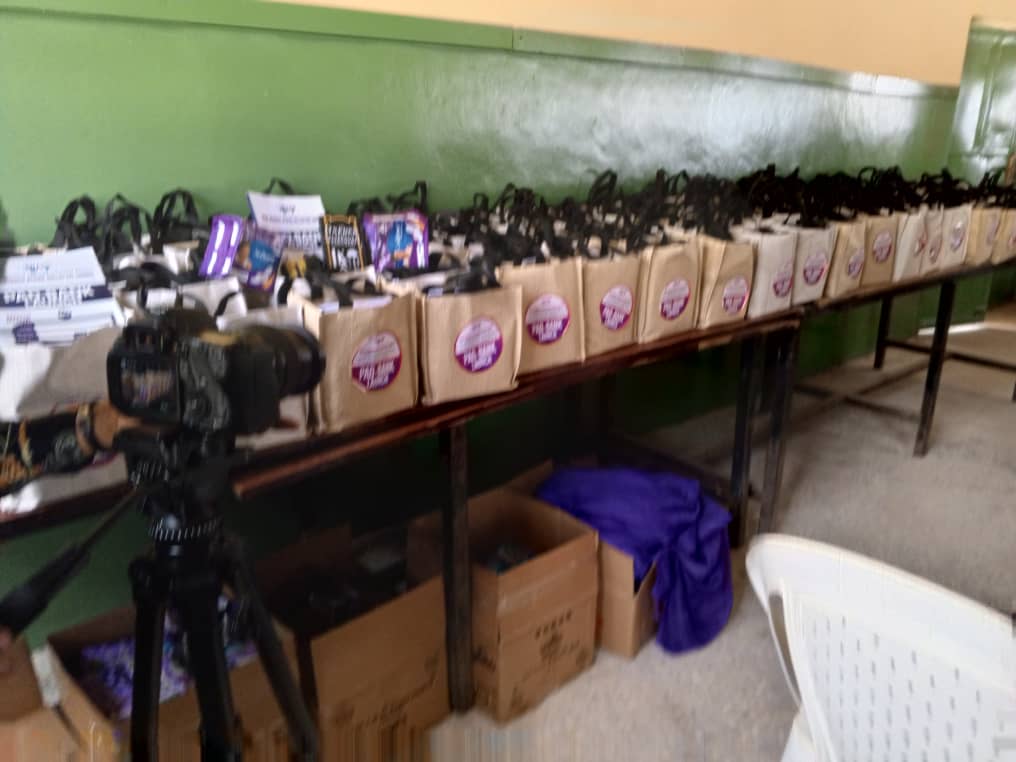
The project enjoys support from various partners, including The Mandela Washington Fellowship Alumni Association, Studio 24, and the Alone but Not Lonely Women with Disabilities Initiative. These collaborations signify a collective effort to address and mitigate the challenges faced by deaf girls during menstruation.
Alhaji Rasaki Ademola, Headmaster of the Abuja School for the Deaf, expressed profound gratitude to DWAI and its partners for their unwavering support. He acknowledged the significant challenges deaf girls face and the efforts of female staff members to assist them. Alhaji Ademola pledged the school’s commitment to ensuring the pad-bank is effectively utilized and maintained.
Carolyn Seaman, Creative Director of Girls Voices Initiative and a partner in the project, delivered an insightful health talk on menstrual hygiene to the students. She emphasized the normalcy of the menstrual cycle for young women and provided practical tips for managing associated challenges such as mood swings, breakouts, and fatigue. Carolyn also educated the girls on the proper use and disposal of sanitary pads while debunking prevalent myths and taboos surrounding menstruation in Nigeria.
Dr. Naomi Osemedua, representing the FCT Mandate Secretary Women Affairs Secretariat, motivated the young girls with an inspiring talk titled, “The Centre-Stage has Your Name on it!” She encouraged the girls to see themselves as capable of achieving their goals and emphasized the importance of self-confidence. Dr. Osemedua pledged ongoing support for the pad-bank and a commitment to ensuring it is regularly restocked with sanitary products.
The day concluded with the deaf girls expressing their heartfelt gratitude to DWAI and its partners. They appreciated the access to quality menstrual products provided by the pad-bank, which alleviated a major source of stress for them. The health talk by Carolyn Seaman was particularly enlightening, and the girls looked forward to applying the menstrual hygiene tips they had learned.
This initiative by DWAI not only addresses an immediate need but also serves as a significant step toward creating a more inclusive and supportive environment for deaf girls. By ensuring they have access to essential menstrual products and education, DWAI is empowering these young women to pursue their education and personal development without the hindrance of period poverty.
Watch The Unveiling Ceremony

